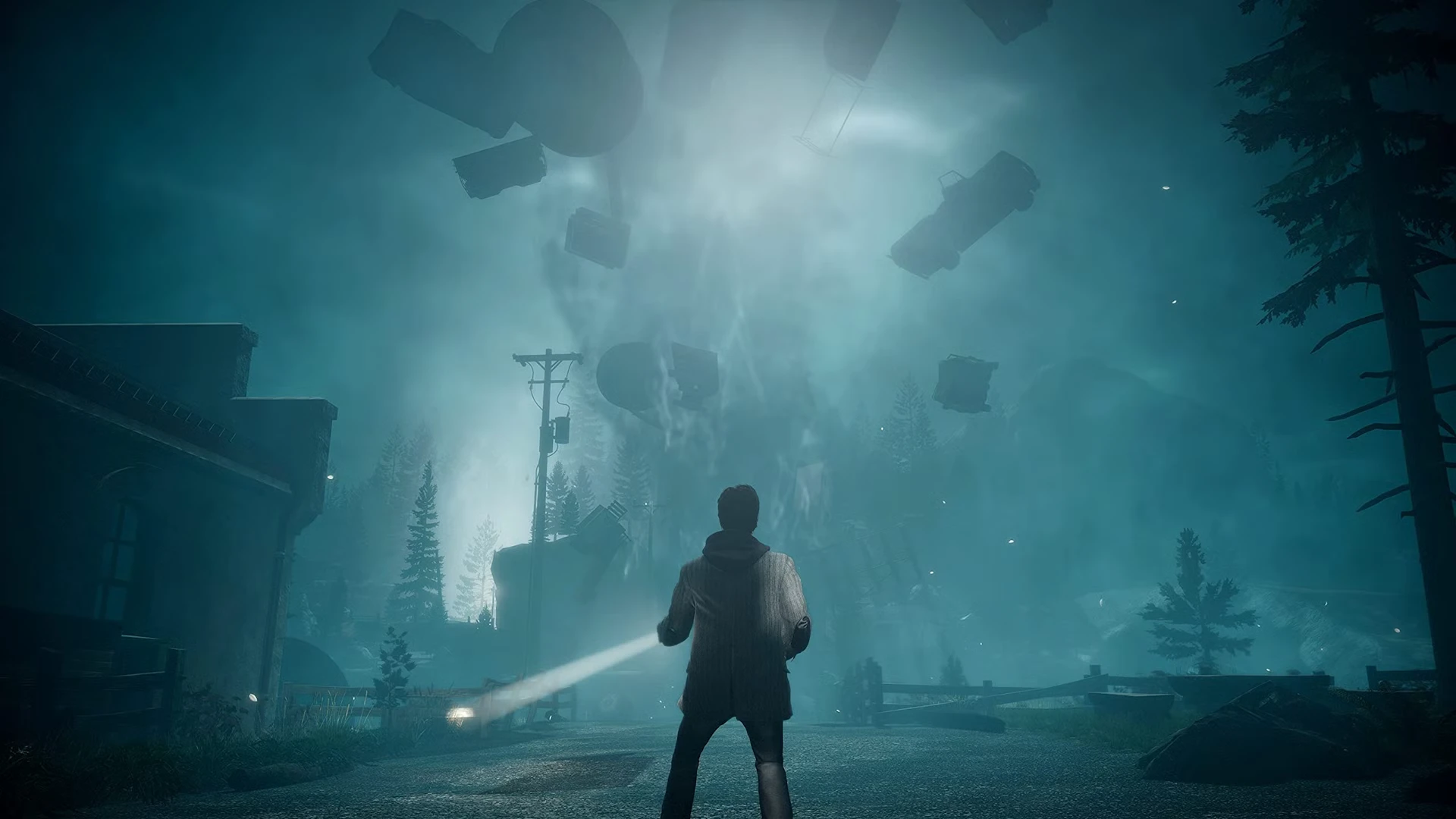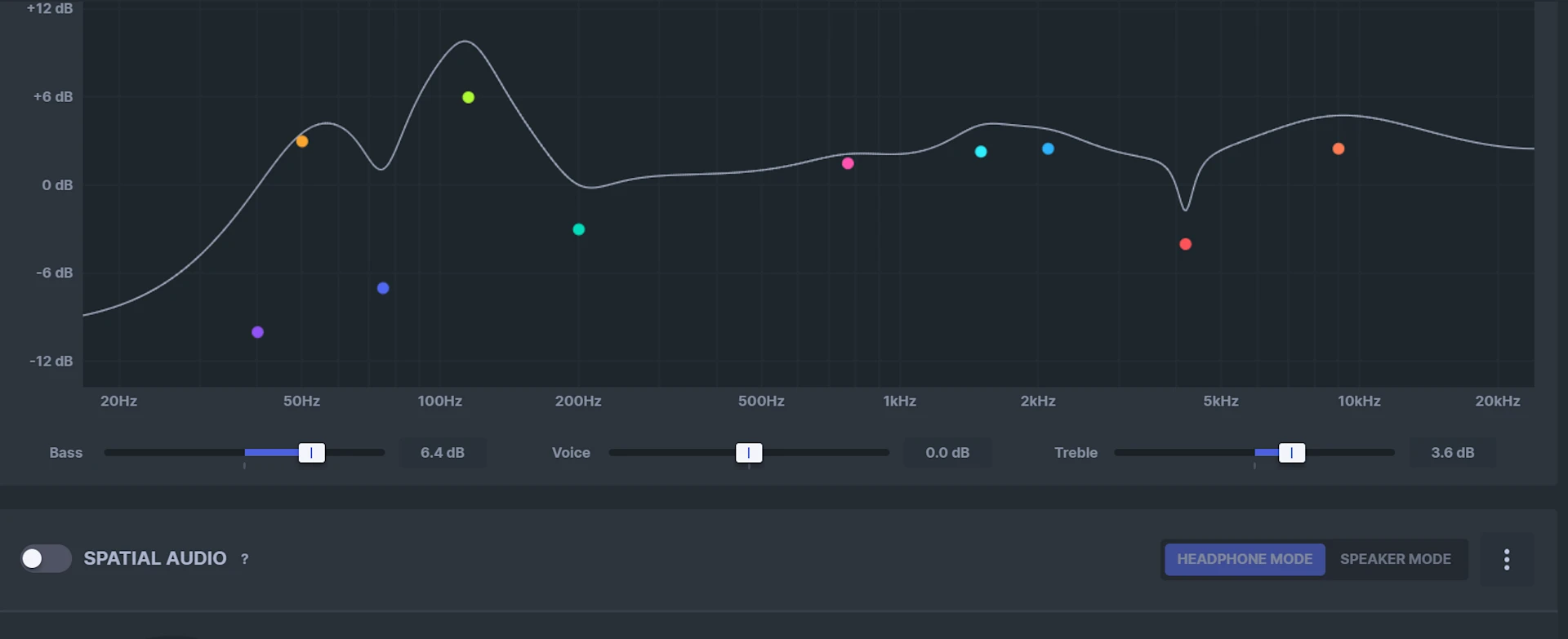
Best Gaming Setup for Horror Games to Hear Every Creeping Footstep
You need this for your next horror playthrough!

Discover the best setup for horror games. Hear every creeping footstep, unsettling whisper, and spine-chilling sound with immersive gear and tips.
From survival horror, to stealth horror, action horror, jump scares, and psychological horror – whatever you play, there’s one constant: sound. A single creaking floorboard, a faint whisper, or a distant growl can mean the difference between escaping alive or meeting a gruesome end. In horror games, audio isn’t just part of the atmosphere, it is the atmosphere.
To fully immerse yourself in fear, you’ll need more than a dark room. You need a setup that brings those terrifying moments to life with crystal-clear detail. We’ll break down essential gear, environmental tips, and audio optimization tricks to build the best horror game setup possible so you can hear every creeping footstep and survive through the night.
Why Sound Matters in Horror Games
Sound matters in horror games because it intensifies immersion, builds tension, and provides critical gameplay cues. Whether you’re creeping through an abandoned asylum or hiding from a creature in the dark, audio cues are key to survival and your entertainment. Here’s why sound is so critical in horror games:
1. Builds Atmosphere and Tension
Horror relies on the unknown. What you hear often matters more than what you see. Subtle sounds like distant thunder, creaking wood, or an eerie lullaby create psychological pressure and anticipation that keep you on the edge of your seat.
2. Guides Your Decisions
Sound is your early warning system. Footsteps behind a wall, the rattle of chains, or a door slowly creaking open let you know something is near, giving you enough time to hide and prepare.
3. Enhances Jump Scares and Psychological Impact
Audio plays a starring role in delivering jump scares. Sudden loud noises or rising audio tension can trigger a visceral reaction. Even subtle background noises like irregular breathing or distant static amplify anxiety.
4. Enables Spatial Awareness
With directional audio, you can pinpoint where sounds are coming from, whether it’s a monster behind you or footsteps to your left. Spatial awareness is key in stealth horror and survival games where every second counts.
Game-Specific Optimization Tips for Horror Games
Whether you have the fanciest gaming equipment or not, your horror game experience can fall flat if your settings aren’t dialed in. Here’s how to fine-tune your setup so you don’t miss a single unsettling sound.
Use Audio Mode in Settings
Most modern horror games include audio presets like headphones, home theater, or stereo modes. If you’re using a gaming headset, which we recommend for full immersion into the horror, select the headphone sound setting option. This enables proper spatial mixing, making directional sounds like footsteps or whispers more precise.
Bonus: Some games like Dead by Daylight or The Last of Us offer accessibility audio presets to enhance spatial cues even further.
Adjust Dynamic Range for Maximum Clarity
Dynamic range determines how loud or soft sounds are in relation to one another.
Night Mode or Low Dynamic Range compresses volume differences so you don’t miss quieter sounds.
High Dynamic Range is more cinematic but can drown out subtle cues during intense moments.
For horror games, Low or Medium Dynamic Range often gives you better awareness of soft, threatening sounds, like a monster breathing nearby.
Enable Spatial Audio (Windows or Console Settings)
For a more immersive, 3D soundscape, enable a spatial audio solution at the system level. The good news are: our SteelSeries gaming headsets are compatible with the respective 3D Spatial Audio technologies!
Windows: Use Windows Sonic, Dolby Atmos for Headphones, or DTS Headphone X.
Xbox: Similar options are available in the audio output settings.
PlayStation: PS5 features Tempest 3D AudioTech, which shines in horror titles like Resident Evil Village.
Pro Tip: Pair these with your headset’s software (like SteelSeries Sonar) to further enhance positional audio.
Tweak In-Game Volume Mix
Manually adjust the volume sliders for dialogue, music, SFX, and ambient sounds.
Turn down the music slightly to make environmental sounds more prominent.
Keep SFX and ambient sound high to make sure you catch all critical cues.
Pro Tip: Some horror games intentionally bury threats in background noise. Don’t mute that hum because you could be muting a monster.
Use Software EQ and Presets for Horror

This is how to take horror game audio to the next level! Beyond the settings in game, you can adjust the audio on an equalizer level. The various frequencies can be adjusted so that certain sounds are more pronounced and more immersive.
Rather than having you tinker with it, use SteelSeries Sonar presets, which feature a library of over 200. These presets are specifically tuned to bring out the best sound in their particular games, such as Resident Evil 2-4 Remakes, Resident Evil Village, Dead by Daylight, Alan Wake 2, Phasmophobia, The Last of Us 2, and more!
Boost mids and highs slightly to bring out footsteps, whispers, and creaks.
Consider creating a custom “Horror Game” preset for your audio profile.
Download SteelSeries Sonar to unlock advanced spatial audio, customizable EQ presets, and pinpoint positional sound. Whether you're running from a ghost or tracking a monster, Sonar gives you the edge where it matters most—your ears.
Essential Gear for an Immersive Horror Game Setup
To truly feel the fear and react to every subtle sound, your horror game setup needs more than just a dark room; you need the right gear. If horror games are some of your favorites, here’s what tech you should prioritize to transform your space for a terrifyingly immersive experience.
Gaming Headset
No piece of gear matters more in horror games than your headset. It’s your lifeline to the sounds that surround you – and the threats you can’t see.
Look for:
Arctis Nova gaming headsets are compatible with 3D Spatial Audio technology
Noise cancellation, like on the Arctis Nova Pro Wireless
Clear, balanced sound across mids/highs for footsteps and ambient cues
Top Pick: The SteelSeries Arctis Nova Pro delivers hi-fi audio, customizable EQ with Sonar, and active noise cancellation – ideal for pinpointing every whisper and creak.
Monitor
While audio is key, clear visuals help you catch subtle motion or lurking shadows.
What to look for:
High refresh rate (120Hx+ for smoother motion)
Low response time for better reaction speed
HDR support enhances contrast and detail in dark environments
IPS or OLED panels for deep blacks and better viewing angles
Tip: Stick to 24”-27” monitors for optimal immersion without overwhelming your peripheral vision.
Lighting
Proper lighting heightens immersion while reducing eye strain, especially in dim environments.
Try:
Bias lighting behind your monitor for ambient glow
Reactive RGB lighting synced with in-game sounds or actions
Smart bulbs you can dim or color-shift depending on the game
Bonus: A flickering red light behind your screen during a scary game? Instant atmosphere.
Keyboard and Mouse
Precise control and feedback are critical when you're sneaking past monsters or sprinting for your life.
Look for:
Mechanical keyboards with tactile switches (or quieter switches if you don’t want key clacks breaking immersion)
Mice with adjustable DPI for fast escapes or slow, precise movement
Programmable keys for quick access to items or actions in-game
SteelSeries Suggestion: Use the Apex Pro Gen 3 keyboard with adjustable actuation for faster response in high-stress horror moments.
Best Horror Games to Test Your Setup
Ready to put your horror setup to the test? These games aren’t just terrifying, they’re packed with detailed sound design, immersive environments, and gameplay that rewards players who pay attention to every creak, whisper, and breath.
1. Resident Evil Village
With gothic visuals and spatial audio that tracks every enemy footstep and growl, Resident Evil Village is a full-body horror experience. The PS5’s 3D audio and next-gen haptics bring every chilling moment to life.
What to listen for: Distant footsteps in castle hallways and the whisper of wind in abandoned villages.

2. Alien: Isolation
Still one of the most terrifying audio experiences in gaming, Alien: Isolation uses sound as a gameplay mechanic. The alien reacts to your noise, forcing you to listen and move with extreme caution.
What to listen for: The hiss of vents, the thump of the alien above you, and the beeping motion tracker.
3. Phasmophobia
This co-op ghost-hunting simulator is built around audio. You speak to ghosts via voice recognition, and the ghosts listen. Directional sound and proximity chat add layers of realism and dread.
What to listen for: Ghost whispers, EMF readers buzzing, and sudden static bursts.
4. Amnesia: The Bunker
With a minimal UI and heavy emphasis on darkness and sound, this entry in the Amnesia series forces you to rely on what you hear to survive.
What to listen for: Distant scraping, footsteps in water, and heavy breathing from unseen creatures.
5. Dead by Daylight
Whether you’re a survivor or the killer, Dead by Daylight is a masterclass in audio cues. Heartbeats, footsteps, and subtle rustles all tell you what’s happening around you – if you’re listening.
What to listen for: The killer’s terror radius, breathing in hiding spots, and the hum of nearby generators.
Honorable Mention: The Last of Us Part I / II
Though more of an action-horror hybrid, The Last of Us series has incredible audio design. The infected’s clicks and the sound of scavenging in tense, quiet spaces are incredibly immersive with good headphones. Playing in Survivor mode or Grounded mode takes these features to the next level by requiring players to be even more stealth-focused.
Gear Up for Every Scare
In horror games, your setup is more than just a luxury, it’s your survival kit. Every subtle sound, from a floorboard creak to a distant scream, can mean the difference between staying hidden and getting caught.
Whether you're braving haunted houses in Phasmophobia or stalking through shadows in Resident Evil Village, your experience depends on what you can hear and how clearly you can hear it.
So dim the lights, put on your headset, and let your setup do what it’s built for: pulling you deep into the fear.
Horror Games: Frequently Asked Questions
Do horror games sound better with headphones?
Yes, headphones offer better immersion and more precise directional sound than speakers. Many horror games even include dedicated headphone audio modes for enhanced spatial awareness.
Why is audio so important in horror games?
Horror relies heavily on what you can’t see. Audio cues build tension, signal danger, and help you react faster. Great sound design can turn a scary moment into a heart-pounding one.
How do I optimize audio settings for horror games?
Use headphone audio mode in-game, enable spatial audio like Windows Sonic or Dolby Atmos, and adjust the EQ to highlight mids and highs (where most cues live) with Sonar. Lower dynamic range can also help you hear subtle sounds more clearly.
Can I use these sound presets on console too?
Yes! Use a SteelSeries headset that is compatible with the Arctis Companion app, such as Arctis Nova 5 Wireless or Arctis Nova 3P/3X Wireless. You can easily pick out the EQ sound preset from the app.

Wordsmith at SteelSeries. Enthusiastic about Dota 2 and fighting games. A cat dad.